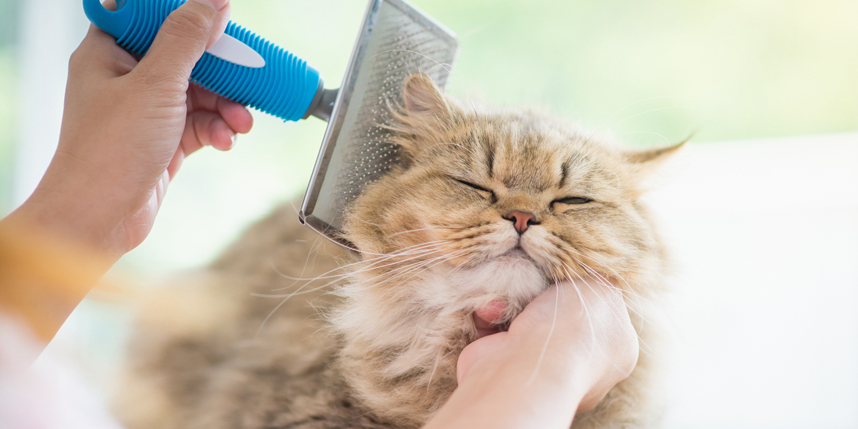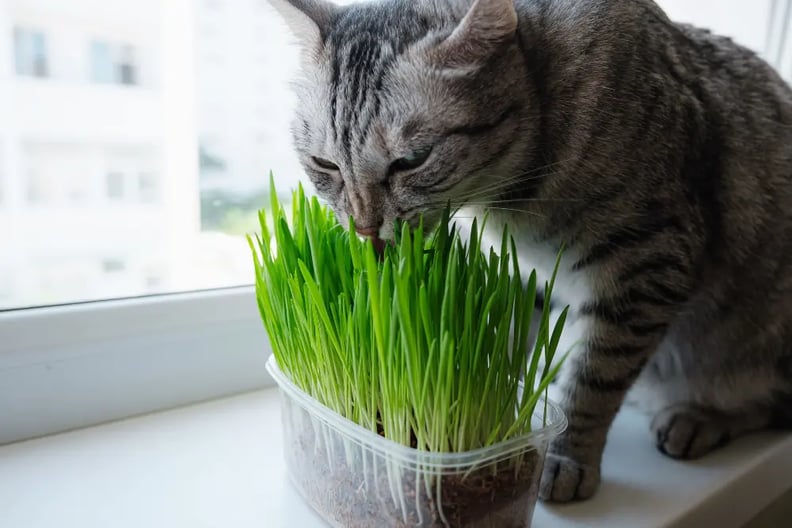As cat owners, we love our furry companions and want them to live long and happy lives. However, one common issue that many cat owners face is hairballs. These unpleasant clumps of fur can cause discomfort, digestive issues, and even lead to serious health problems if left untreated. Fortunately, there are steps you can take to prevent hairballs in your cat. In this article, we will discuss some helpful tips and tricks to keep your feline friend free from hairballs.
Understanding The Causes of Hairballs

Before diving into prevention methods, it’s important to understand why hairballs occur in the first place. Cats have rough tongues designed for grooming, which often leads to them ingesting loose fur while grooming themselves. Most of this fur passes through their digestive system without issue, but sometimes it can accumulate into a hairball. This is more likely to happen in cats with longer or thicker coats, as well as during shedding seasons. Additionally, excessive grooming due to stress or boredom can also contribute to hairballs.
Physical Risks Associated With Hairballs
While hairballs may seem like a normal part of a cat’s life, they can actually pose some serious risks. When a large enough hairball gets lodged in the stomach, it can cause blockages in the digestive tract. This can lead to vomiting, constipation, and even intestinal rupture in severe cases. Furthermore, frequent hairballs can be a sign of an underlying health issue such as gastrointestinal disorders or allergies. It’s important to monitor your cat and take preventive measures to avoid any potential risks associated with hairballs.
Signs of Hairballs in Cats
In most cases, hairballs are easily identified by their tubular shape and size. However, not all cats are able to cough up their hairballs. Keep an eye out for these common signs of hairballs in cats:
- Frequent vomiting, especially after meals
- Lack of appetite or difficulty eating
- Constipation or straining during bowel movements
- Lethargy and decreased energy
- Excessive grooming leading to bald patches or skin irritation
If you notice any of these symptoms in your cat, it’s important to consult with a veterinarian for proper diagnosis and treatment.
Tips to Prevent Hairballs in Cats

Now that we understand the causes and risks associated with hairballs, let’s explore some preventive measures you can take to keep your cat healthy and hairball-free.
Brush Your Cat Regularly
The best way to prevent hairballs is by removing loose fur before your cat has a chance to ingest it. Regular brushing removes dead hair, keeping your cat’s coat clean and reducing the amount of fur they swallow during grooming. It’s recommended to brush your cat at least twice a week, and more frequently during shedding seasons. Consider using a de-shedding tool or a soft brush designed specifically for cats to effectively remove loose fur.
Benefits of Regular Brushing
Aside from preventing hairballs, regular brushing also offers other benefits for your cat’s overall health:
- Keeps their coat shiny and healthy
- Reduces the risk of matting and tangling
- Helps distribute natural oils throughout the fur for a healthier skin
- Increases bonding time between you and your cat
Add Fiber to Their Diet
Another way to prevent hairballs is by incorporating more fiber into your cat’s diet. Fiber helps move hair through the digestive system, reducing the likelihood of it forming into a hairball. You can add a small amount of canned pumpkin (not pumpkin pie filling) or a specially formulated hairball control diet to your cat’s meals. However, make sure to consult with your veterinarian before making any changes to your cat’s diet.
Avoid Giving Them Human Foods
While it may be tempting to give your cat a taste of your food, some human foods can actually increase the risk of hairballs. Foods high in fat and dairy products can cause digestive issues in cats, leading to more hairballs. Additionally, avoid giving them raw eggs as it can interfere with their absorption of vitamin B.
Provide Mental Stimulation
As mentioned earlier, excessive grooming can contribute to hairballs. This is often caused by stress or boredom. To prevent this, provide your cat with plenty of mental stimulation, such as interactive toys, scratching posts, and window perches. This will not only keep your cat entertained and happy but also reduce their need for excessive grooming.
Encourage Playtime and Exercise
In addition to mental stimulation, regular playtime and exercise are essential for your cat’s overall health. By keeping your cat active and maintaining a healthy weight, you can prevent excessive grooming and help them maintain a healthy digestive system.
Home Remedies for Hairballs

Aside from the tips mentioned above, there are also some home remedies that can help prevent hairballs in cats.
Coconut Oil
Adding a small amount of coconut oil to your cat’s food can help lubricate their digestive system, making it easier for hair to pass through. Just make sure to start with a small amount (about ¼ teaspoon) and gradually increase if needed.
Olive Oil
Similar to coconut oil, olive oil works as a natural lubricant and helps move hair through the digestive tract. However, it’s important to not give your cat too much as it can cause diarrhea.
Petroleum Jelly
Petroleum jelly has been used as a hairball remedy for years. Simply spread a small amount on your cat’s paw, and they will lick it off while grooming. However, this should only be done occasionally and under veterinarian supervision as too much petroleum jelly can cause gastrointestinal issues.
Frequently Asked Questions About Hairballs in Cats

What is a hairball?
A hairball, also known as trichobezoar, is a clump of fur that has accumulated in a cat’s stomach and is usually coughed up.
Are hairballs normal in cats?
Hairballs are relatively common in cats, especially those with longer or thicker coats. However, frequent hairballs can be a sign of an underlying health issue and should not be ignored.
How often do cats get hairballs?
The frequency of hairballs varies from cat to cat. Some cats may rarely have hairballs, while others may have them more frequently.
Do hairballs hurt cats?
Hairballs themselves do not cause pain, but they can lead to blockages in the digestive tract, which can be dangerous and painful for your cat.
When should I consult a veterinarian?
If your cat is frequently vomiting hairballs, has difficulty eating or using the litter box, or shows any other signs of discomfort, it’s best to consult a veterinarian for proper diagnosis and treatment.
Conclusion: Keep Your Cat Hairball-Free

Hairballs may seem like a minor issue, but they can actually pose some serious risks to your cat’s health. By following these tips and tricks, you can help prevent hairballs and keep your feline friend happy and healthy. Regular grooming, a balanced diet, and providing mental stimulation and exercise are key to keeping your cat free from hairballs. If you notice any concerning symptoms, it’s important to consult with a veterinarian for proper care and treatment. With proper preventive measures, you can ensure that your cat lives a long and comfortable life without the discomfort of hairballs.



